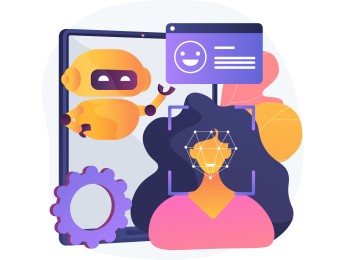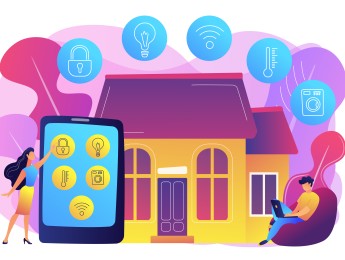Artificial Intelligence is not just transforming industries—it’s unlocking new possibilities for inclusion. This course delves into how AI technologies can be intentionally designed to empower individuals with disabilities, improve digital accessibility, and promote equal participation across digital platforms.
Participants will explore practical AI applications that support visual, auditory, cognitive, and physical accessibility. From screen readers and speech recognition to predictive text and emotion AI, the course equips professionals with the tools and mindset to integrate inclusive design principles into their tech strategies. Through case studies, prototyping exercises, and ethical discussions, learners will gain the skills to build technologies that truly serve everyone.
By the end of this course, participants will be able to:
- Understand the principles of accessibility and inclusive design.
- Explore AI technologies that address diverse accessibility needs.
- Integrate accessibility tools into digital platforms using AI.
- Evaluate and improve products through user-centered design and accessibility audits.
- Navigate ethical, legal, and societal considerations in inclusive AI development.
This course is tailored for:
- UX/UI Designers and Product Managers.
- AI Developers and Software Engineers.
- Accessibility Coordinators and Inclusion Officers.
- Tech Entrepreneurs focused on assistive technologies.
- Educators and NGOs working on disability rights.
- Policy Makers and Legal Advisors in digital inclusion.
The course combines expert instruction, hands-on tool exploration, peer discussions, and inclusive design challenges. Participants will work on prototyping AI-enabled accessibility features and perform usability evaluations with simulated user feedback.
Day 5 of each course is reserved for a Q&A session, which may occur off-site. For 10-day courses, this also applies to day 10
Section 1: Foundations of AI and Digital Accessibility
- What is accessibility? Key concepts and disability models.
- The role of AI in inclusive tech development.
- AI applications that enhance accessibility in daily life.
- Overview of global standards (e.g. WCAG, ADA, EN 301 549).
- Case examples of inclusive AI in real-world products.
Section 2: AI Solutions for Diverse Accessibility Needs
- Vision: AI-powered image recognition and text-to-speech tools.
- Hearing: Speech-to-text, sign language recognition, and captioning AI.
- Cognitive: Predictive text, adaptive content, and assistive AI assistants.
- Physical: Voice-controlled navigation, gesture recognition, and robotics.
- Tool lab: Exploring top accessibility APIs and open-source tools.
Section 3: Inclusive Design Principles in AI Development
- Human-centered design for accessible AI.
- Co-designing with users who have disabilities.
- Designing for adaptability and personalization.
- Prototyping accessibility-first AI products.
- Workshop: Redesigning a digital product with inclusivity in mind.
Section 4: Testing, Evaluation, and Compliance
- Conducting accessibility audits with AI tools.
- User testing and simulation for diverse impairments.
- Legal frameworks and policy compliance (ADA, GDPR, etc.).
- Metrics and benchmarks for accessible AI.
- Activity: Accessibility gap assessment of an existing platform.
Section 5: Ethics, Inclusion, and the Future of Accessible AI
- Addressing bias and exclusion in AI algorithms.
- AI and human dignity: Balancing autonomy and assistance.
- Inclusive AI in public services, education, and employment.
- Emerging trends: Neurodiverse AI interfaces and empathetic computing.
- Final project: Present a proposal for an AI accessibility feature or initiative.
Upon successful completion of this training course, delegates will be awarded a Holistique Training Certificate of Completion. For those who attend and complete the online training course, a Holistique Training e-Certificate will be provided.
Holistique Training Certificates are accredited by the British Accreditation Council (BAC) and The CPD Certification Service (CPD), and are certified under ISO 9001, ISO 21001, and ISO 29993 standards.
CPD credits for this course are granted by our Certificates and will be reflected on the Holistique Training Certificate of Completion. In accordance with the standards of The CPD Certification Service, one CPD credit is awarded per hour of course attendance. A maximum of 50 CPD credits can be claimed for any single course we currently offer.
- Course Code PI2 - 134
- Course Format Classroom, Online,
- Duration 5 days













